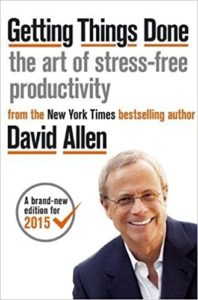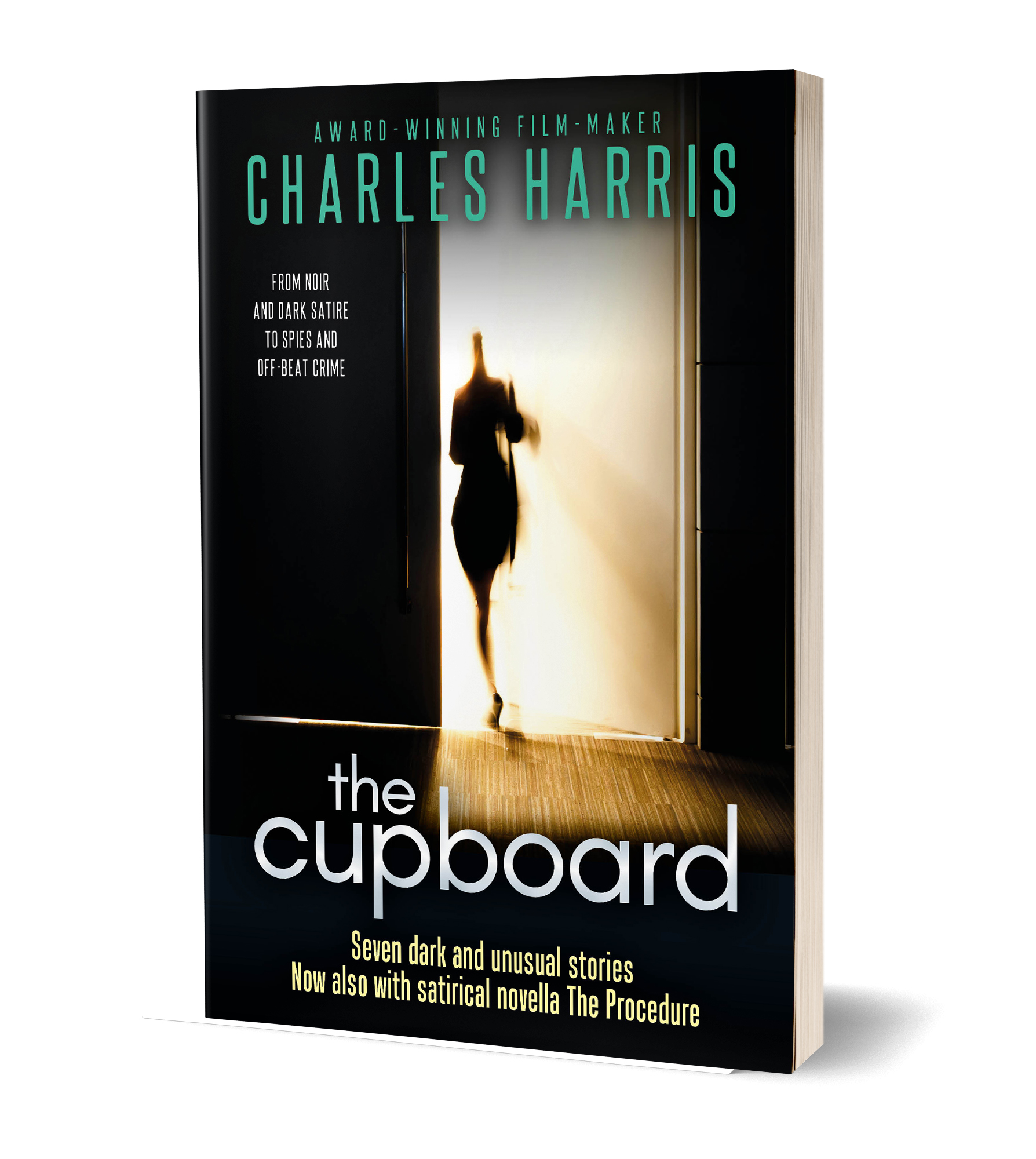Feeling overwhelmed? People love David Allen’s “Getting Things Done.” Are they right?
31 Saturday Mar 2018
Written by Charles Harris in Books, Life, Psychology, Reviews, The Library Corner
Tags
David Allen, diary, emails, Getting Things Done, GTD, next action, organise, productivity, self-help, stress-free, tickler file, time management
Feeling overwhelmed by all those emails, all that paper,
the to-do lists stuck to the wall or just the things you know you have to do that are running round your head?
Everyone I know who’s read David Allen’s masterful Getting Things Done falls in love with it. Maybe you will too.
I’ve been waiting some time to write a review of this book, but I wanted to try the techniques first. Then I wanted to really master them. Then I was having such fun “getting things done” that I never got round to writing the review.
But today’s the day. If only because holidays are good times for stepping back and thinking of the way you do things. And if you are having any kind of problems in dealing with the things you want to do, this book is for you.
Why do we start feeling overwhelmed in the first place?
The joy of this book is threefold.
- First, and perhaps most important, it’s based on a simple yet life-changing idea
- Second, he takes you through the process step-by-step, making his approach easy to adopt
- Third, it’s very practical, full of little tips and strategies that would help you on their own.
When I say the basic idea of the book is “life-changing,” I’m aware that I may sound rather over-the-top. But for me it was.
Allen contends that we find ourselves feeling overwhelmed for one simple reason: we try to keep too much in our heads.
That nagging fear
I walk into my study, and immediately I see a pile of clippings that I’ve been meaning to file. But I haven’t time because I turn to my emails, and remember there’s a load of messages to deal with. Before I can do this, I remind myself that I have five voice-mails to answer.
And three articles I’ve been wanting to write.
At each point my stress levels rise. And always there’s the nagging fear that hidden in my in-box, or under that pile of papers on my desk, is something crucial that I’ve forgotten to do.
Allen’s answer is essential simple: dump all your “stuff” out of your head. Don’t rely on your memory at all. Rely on the process.
The GTD system is based on clearing your mind. You don’t have to remember anything. You remove all those little sources of anxiety that important things may be lurking forgotten in some corner of your life.
Clear your mind
The “core process” as Allen describes it has five stages –
- You collect things that command your attention
- You process what you intend to do about them (if anything)
- You organise the results into what he calls “buckets” and regularly
- Review the options for what you choose to
- Do.
If this sounds obvious, it’s because most of us do something like this. We just don’t do it very well.
We allow the different steps to overlap. So, for example, I read an email and already I’m trying to process it, work out what to say, realise I haven’t got enough information, try to find what I need to know…
Before I know it, I’ve spent fifteen minutes, and there are ninety emails that I haven’t even got round to looking at yet.
Part of Allen’s genius is to stop us allowing the different stages to leak into each other. There’s something very soothing about just doing one thing at a time. When you collect, you just collect. When you process, you process.
That way a lot gets done very quickly. And a lot that doesn’t need to get done, gets quickly dumped.
Next actions
Along the way, Allen offers some tremendously useful tricks and tips that would be worth the price of the book on their own.
One is the “next action”.
How often do you not deal with something on your to-do list because you haven’t got a clear idea of what to do first.
For example, I have a note in my diary to phone the garage to book my car in for its annual service. But before I do that, I need to find the number. To see if there are any outstanding faults they’ll need to check over. And to work out a good date for it to go in.
With all that to do, it’s too easy to put off making the call.
The next action trick
Allen’s tip is: when you write down anything that needs to be done, also write down what the “next action” will be.
In this case, I’ll put a note next to the diary entry, reminding myself that there’s been a smell of petrol and that the electronic keys are losing battery power.
I’ll also look up the service department phone number in advance and write that down too.
Now, when it’s time to phone, I can go straight ahead and do it.
The “next action” trick is enormously powerful. Try it. It applies to just about anything you might have on your to-do list: writing an email, looking for a job, planning the next novel, researching a story.
What’s the next action that needs to be done? Write it down. You’ll be surprised how smoothly the process starts to become.
Tickler files
However, my favourite GTD tip is the “tickler file.” This has been a life-saver.
A tickler file is essentially a set of files, each marked for a different day of the week or month, where you can store what you’ll need for that day.
In the old days, I’d arrange a meeting or event, and then on the day I’d be scraping around looking for all the material I need to take.
Now if, for example, I’m invited to a book event on the 30th, I place all the notes, fliers, etc, that I’m going to need in the file marked “30th.” There they sit, ready for me when I need them on the day.
No need to rush around searching at the last minute.
Allen has a very robust system of tickler files for this week, this month and next month. I personally found I didn’t need so many as he recommends.
I use seven hanging files marked “Sunday” to “Saturday.” Behind this is another hanging file with 31 plastic envelopes – marked “1” to “31.”
Stuff for events coming up in the next seven days goes into the file for the appropriate day of the week. Material for further off dates are stored in the plastic with the date on it.
Like many great ideas, it’s simple but brilliant to use.
Does GTD stop you feeling overwhelmed?
The subtitle to Getting Things Done is How to achieve stress-free productivity. So, the question is, does it work?
Personally, yes.
You will need to allow time to get the system up and running. Allen recommends clearing two days from your schedule, so as not to be distracted.
Actually, I found the best part of a day was enough, but obviously it depends on how complex your life is. (He recommends using GTD for everything – work, home, hobbies, etc).
However, you keep on learning and improving. As with any system, you won’t get the hang of all of it at once. But the immediate effects will be visible and as you go on, you’ll get better still.
Is it for everybody? Hard to say. Some people don’t want to be organised – nobody likes feeling overwhelmed, but sometimes it’s easier to keep muddling through. There’s always a risk attached to trying anything new.
However, he makes it simple to follow. The writing is clear, with diagrams as needed. He also has an excellent blog and newsletter, which are free to all.
And when I emailed a query about part of the process, his staff were impressively diligent in helping me out.
You have to weigh up the costs for yourself. The cost of a book plus a day’s work or so to implement the system. Myself, I think it’s a tiny price to pay.
Tell me how you get on.
Useful links:
Getting Things Done – The art of stress-free productivity – paperback, audio and ebook – UK USA


Tell people what you think